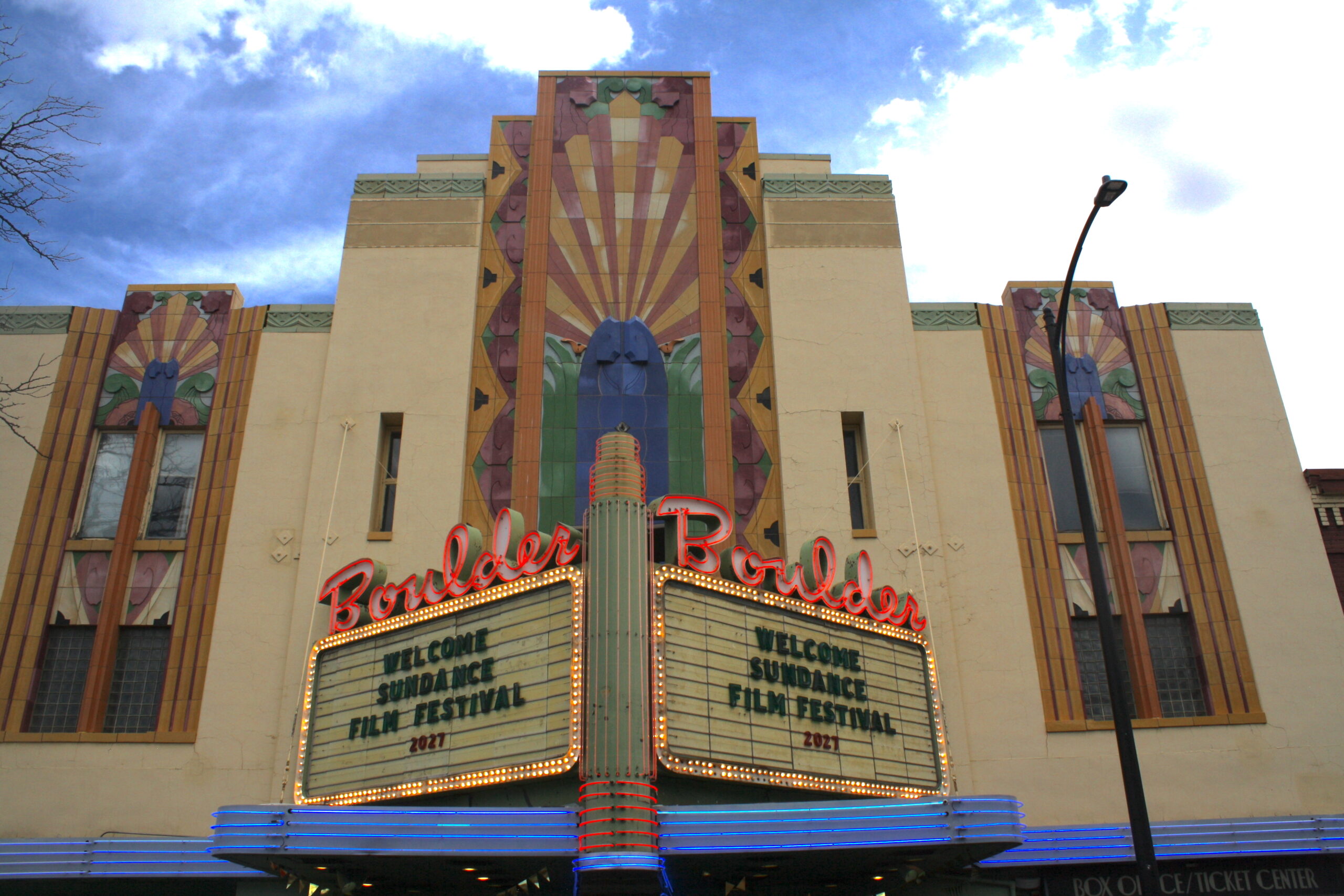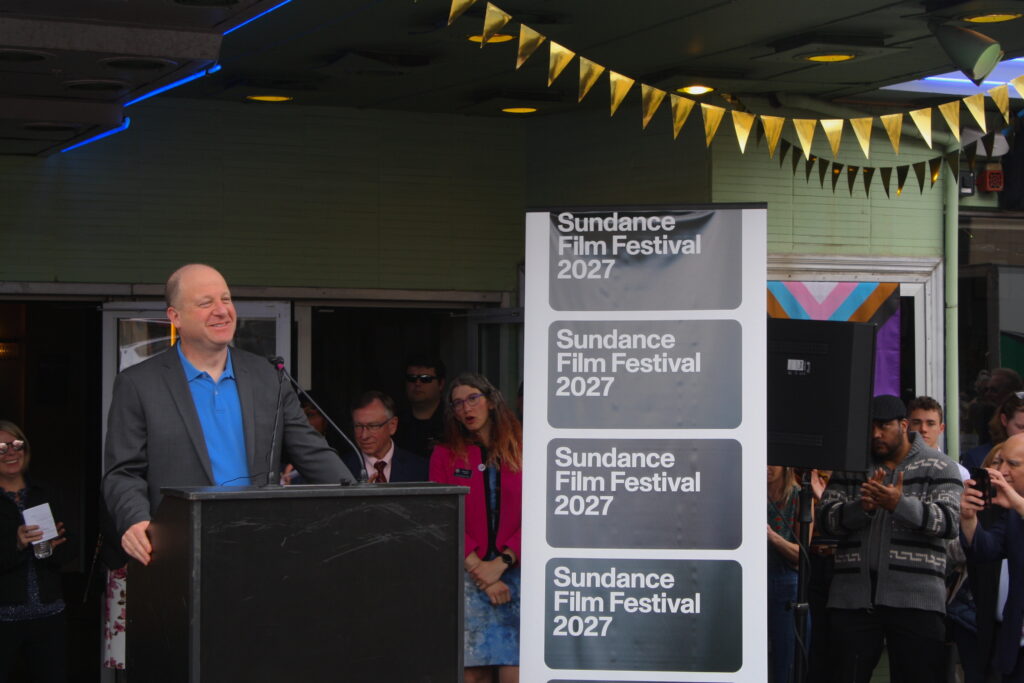
Cloud cover offered a respite from the Colorado sun on the first balmy day of spring as hundreds gathered outside Boulder Theater for a March 27 press conference announcing the city’s successful bid to host the Sundance Film Festival beginning in 2027.
“We began this process with an open mind, driven only by our mission of serving artists, the independent film community and engaging audiences,” Sundance Institute board chair Ebs Burnough said while acknowledging the other finalist cities of Cincinnati, Ohio, and the festival’s longtime home of Salt Lake City and Park City, Utah. “But there was something about Boulder.”
While the prestigious film festival founded in 1985 by former Boulder resident Robert Redford will be anchored in the People’s Republic — which purportedly won the competitive bidding war in part due to its accessibility, walkability and proximity to nature — Burnough said Sundance hopes to enliven the arts community throughout Colorado.
“We are not here to only show up 10 days a year in one location,” he said. “The Sundance Film Festival is here to be a statewide partner, collaborating on arts and culture, education and community. We are incredibly excited to get to work with all of you.”

Gov. Jared Polis emphasized the statewide impact during his remarks, projecting a $2 billion economic benefit over 10 years with major ripple effects on the Front Range and beyond.
“The arts are something we all enjoy as consumers … but they also put food on the table for so many people: the filmmakers, the producers, but also all those involved with the productions,” said Gov. Polis, whose mother Susan Polis Schutz is a documentarian. “There are many other Boulderites and Coloradans who work in and around creative industries as well as the tourism industry, which the Sundance Institute and Sundance Film Festival will benefit.”
Boulder wooed the country's largest independent film festival, drawing tens of thousands of out-of-state visitors each year, with the promise of up to $34 million in refundable tax credits over the course of a decade. The bipartisan bill was passed by the Colorado House of Representatives on March 13 and is currently in the final stages of the legislative process in the senate, amid some opposition from Republicans.
There has been speculation regarding the political valence of Sundance’s decision to relocate from conservative Utah, which on March 27 — the same day as the relocation announcement — became the first state in the nation to ban the display of LGBTQ+ pride flags on public property. Gov. Polis, the first openly gay man elected governor in the United States, downplayed this aspect of the festival’s decision-making process.
“This is not about politics. There’s Republicans, Democrats and Independents in our state who are all proud to be Coloradans. We’re proud to be part of helping people tell their stories, and we’re proud of economic development,” he said. “We put together a compelling proposal that really shows how Colorado can help be the next great chapter for the Sundance Film Institute, and I think that’s what won the day.”
Editor's note: An earlier version of this story listed 1981 as the founding year for the Sundance Film Festival, which was the founding year of the Sundance Institute.
